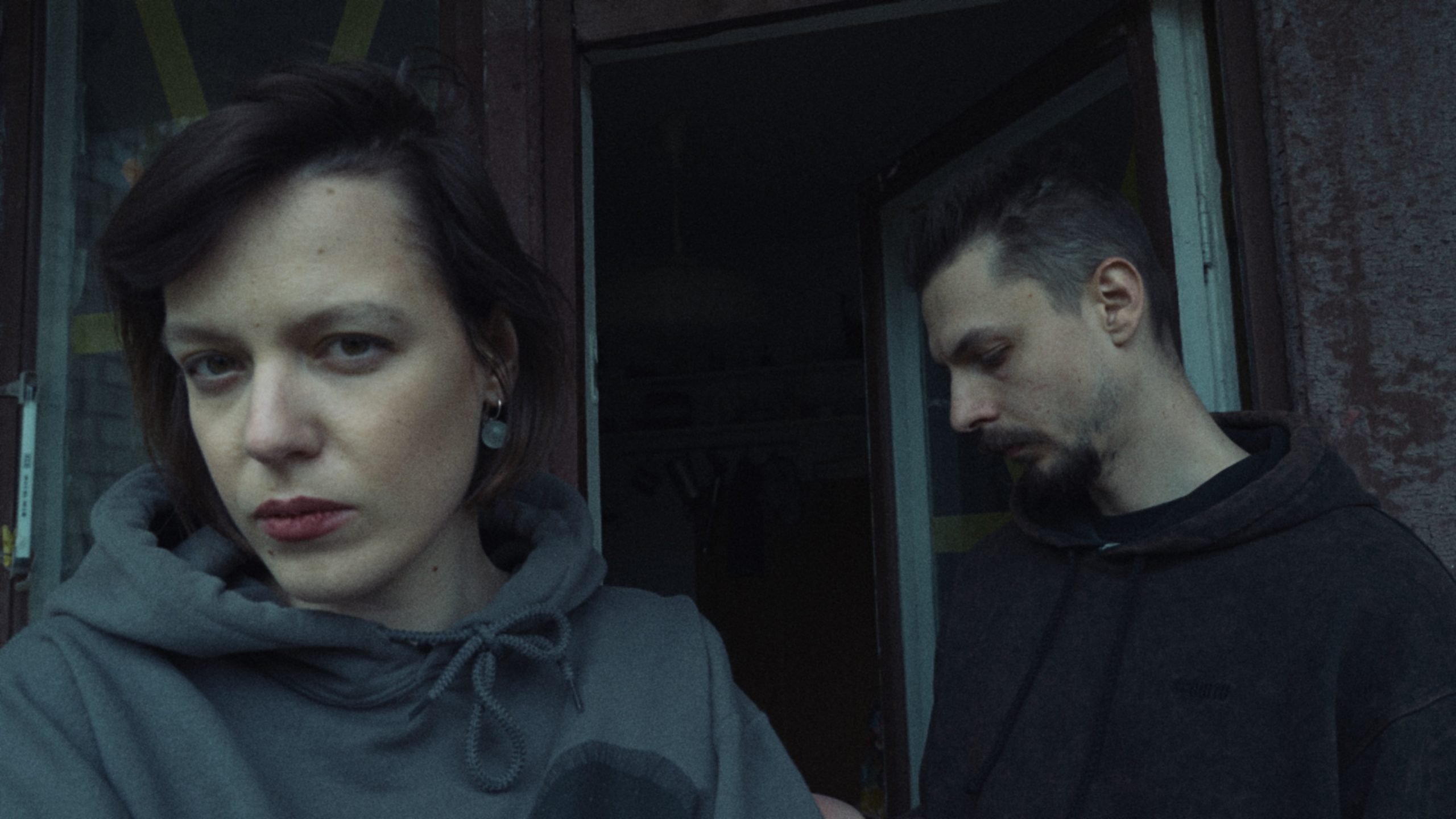
In early 2022, director David Gutnik had flown to Warsaw with plans to make a film about Ukrainian refugees, who, since Russia’s invasion of the country, number some 8.3 million. But his instincts would lead him elsewhere. His eventual documentary, while still immersed in the war, would come to center instead on a smaller group of people who fiercely and defiantly chose to remain in Ukraine: artists.
Premiering at Tribeca Festival on June 8, Rule of Two Walls trains its lens on a clutch of Ukrainian artists, who, rather than flee their homeland, are staying to make art as an act of resistance. Shepherding the pack is Lyana Mytsko, the director of the Lviv Municipal Arts Center, which has been serving as a shelter as much as a gallery amid the war. It was Mytsko who told NPR in March 2022 that every Ukrainian artist “is a gun of Ukrainian culture.”
When Gutnik read the interview, “I was like, ‘Who is that person?'” he told Artnet News. “I want to meet her.”
Lyana Mytsko, as seen in Rule of Two Walls, directed by David Gutnik. Photo courtesy of New City/Old City.
Mytsko would serve as Gutnik’s informal guide in Lviv, leading his crew through raw encounters and candid dialogues with creators from rapper Stepan Burban to wearables artist Serhii Petrov. They follow illustrator Bohdana Davydiuk as she plasters her strikingly designed posters around the city (“Our fire is stronger than your bombs,” one of them reads); and they speak to Diana Berg on her video series that mourns the bombing of the Mariupol Theater.
Even in the most casual conversation, the artists evince both audacity and grief—for which art is an outlet as much as a channel. As Petrov reflected in the film: “This war changed creators. Since art is my life, my only source of living, I will definitely try to create something. If I don’t, I will be over.”
Gutnik even turns the camera on his own Ukrainian film crew, whose stories of loss and resistance are captured in voiceovers. Their art, as just so happens, is the film we’re watching.
“It just became immediately apparent and necessary and right to include them in a portrait of artists because their stories are as extraordinary as the other artists in the film,” Gutnik said.
The film is as much personal to Gutnik, a Ukrainian-American who is himself descended from refugees. The outbreak of war, he said, awoke something in him, as it did in Ukrainian artists and the diaspora.
“We were inspired,” he said. “We were inspired to own and claim that Ukrainian identity.”
In fact, Rule of Two Walls is more so a portrait of that identity and culture, which have long been suppressed by the Russian empire. Gutnik said so himself in the documentary, in a voiceover that describes how his Ukrainian identity has been subsumed by the fact that he speaks not Ukrainian, but Russian.
Language is but one factor. The anonymous artist Kinder Album, while showing her searing paintings on her experience of war, told the filmmakers: “Culture is an action and product of a people. It is not possible to have a nation and not have a culture.”
In the documentary’s most symbolic scene, Mytsko oversees the restoration of a Ukrainian apartment where workers were in the process of removing layers of whitewash, once applied by the Soviets, to reveal age-old painted murals.
“No one was supposed to stand out. The idea was to destroy identity,” said a restorer of the Soviet’s efforts. “We are removing the chalk and we’re discovering all of this… we haven’t seen these murals before. We discover identity that existed here before.”
Of course, amid this awakening are shattering reminders of war. Dead bodies are pulled out of ditches, fires erupt in bombed-out buildings, and the National Art Museum of Ukraine sits empty but for remnants of a hasty evacuation. For Gutnik, cutting between art on the walls of the Lviv Municipal Arts Center then carnage on the streets encompassed the “highs and lows” of his own experience making the film.
It’s also a reality against which the resilience of the country’s artists comes into sharp, urgent relief.
“In a better world, this film doesn’t exist,” said Gutnik. “But on the flip side of that, there’s something really awe-inspiring about them and their work. I felt like I was in the company of giants. It made me proud; it made me feel connected.”
Rule of Two Walls is showing at the Tribeca Festival from June 8 at SVA Theatre, Village East by Angelika, and AMC 19th St. East 6.
More Trending Stories:
The Art Angle Podcast: James Murdoch on His Vision for Art Basel and the Future of Culture
A Sculpture Depicting King Tut as a Black Man Is Sparking International Outrage